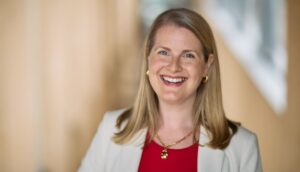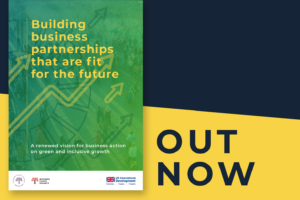“This will be our reply to violence: to make music more intensely, more beautifully, more devotedly than ever before.” Leonard Bernstein
Leonard Bernstein’s role as a larger-than–life figure is well-documented, especially in this year of celebration for the one hundred-year anniversary of his birth. Questions remain as to what one can learn from his music, political activism, legacy, and writing. What are the key points that should be carried into the future? What essential and profound truths can be learned from a study of his philosophical writings? And what about the music—will it live into the future? Will it continue to have a relevant message? Indeed, what exactly is it that Bernstein did, that contemporary musicians and activists need to know about? This interview with Bernstein’s oldest son—Alexander—shows how his father’s seminal ideas remain worthy of study and emulation and are indeed vital today.
Leonard Bernstein was as practical as he was idealistic and sought to increase diversity and inclusivity within the classical music realm by supporting underserved minorities in conducting positions, within orchestras, and as soloists. He also worked in public non-musical roles to increase awareness for a variety of Civil Rights issues. He established an educational paradigm that incorporates the arts into all academic areas with the goal of creating a positive and expansive learning tool for underserved populations. Today, Leonard Bernstein’s children actively work towards social change through music in numerous ways. They carry on their father’s legacy through the “Artful Learning” educational program; and, through their involvement in El Sistema, which is a program of music-training originating in Venezuela “designed to improve the life trajectory of young people living in poverty and as a paradigm for social change.” [http://www.elsistemacolorado.org/our-program/el-sistema-history/]
In addition, Bernstein’s mentees (Michael Tilson Thomas, Marin Alsop, and others) have sustained the energy towards music-making and social connection that he modeled. Through a perusal of Bernstein’s letters, essays, personal life, political activities, and music, Alexander Bernstein talks about his father’s legacy. He highlights Bernstein’s lifelong effort to tackle difficult social problems through both artistic and personal means while challenging individuals to make their art relevant and meaningful on the large scale. The interview includes important quotes that show the insight of Bernstein’s worldview and understanding of the importance of the arts to the individual and in society, such as:
“Every artist copes with reality by means of his fantasy. Fantasy, better known as imagination, is his greatest treasure, his basic equipment for life. And since his work is his life, his fantasy is constantly in play. He dreams life. What do we do with our minds when they boggle? We quickly put them to strenuous imaginative work. Mind-boggling time is the perfect moment for fantasy to take over. It’s the only way to resolve a stalemate. And so I ask you again, are you ready to dare to free your minds from … constraints…? Will you accept, as artists do, that the life of the spirit precedes and controls the life of exterior action? That the richer and more creative the life of the spirit, the healthier and more productive our society must necessarily be? If you are ready to accept that, and I’m not saying that it’s easy to do, then I must ask you if you are ready to admit the ensuing corollaries, starting bravely with the toughest one of all: that war is obsolete.” [“Johns Hopkins Commencement Speech,” May 30th 1980]
Alexander Bernstein’s unique position gives us a window into his father’s mind and his ideas of rationality, art and world impact, saying: “My father deeply believed that art and reason, art and rationality, were inextricably connected.” [Music, Business, Peace Summit, May 2017]. His father’s persistent optimism comes out in quote after quote, with this intensely personal statement:
“If I weren’t convinced that there were a way to solve all this – the world’s problems – I would simply jump out of the window and wouldn’t worry about it anymore. But I am convinced that somehow, miraculously, through the rediscovery of man’s rational power, any, maybe through the appearance of leadership, we’ll be able to make it.” [Interview with John Bruin, Vogue magazine, September 1st, 1971].
Sometimes, Bernstein’s legacy has been underestimated and cast aside as a relic of past generations. It is time to reconsider the challenges presented by this iconic figure. In the words of another Bernstein child (Jamie):
“Leonard Bernstein grew up in a world of stark political contrasts—a world full of evil and damage, tempered by powerful forces of good. Surely by creating beauty, he felt, and by sharing it with as many people as possible, one could ultimately tip the balance in favor of brotherhood and peace — the human equivalents of musical harmony.” [https://leonardbernstein.com/about/humanitarian]










